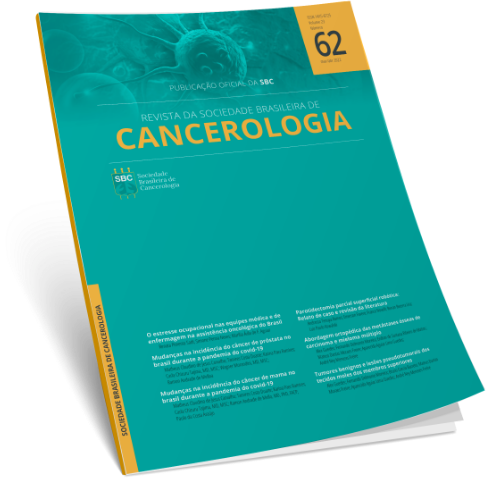Objectives: the main goals were to evaluate preoperative PSA, Gleason score and clinical stage in patients with prostate cancer (PC), as these parameters predict the progression after radical prostatectomy (RP). Methods: we reviewed the clinical records of patients treated with RP between February 1990 and March 2010. Biochemical failure was defined as PSA level greater than 0.2 ng/mL after RP. Chi-square test was used to evaluate the association among clinicopathological characteristics. Differences in dichotomous variables and continuous variables were tested using Student’s t-test. Statistical significance was set at p<0.05. Results: mean age of 1,000 patients was 61.7 years. Mean PSA was 9.28 ng/mL (SD 8.20). The mean follow-up was 53.9 months. Biochemical recurrence occurred in 30.15% of the patients and mean time to detection was 25.9 months. Clinical progression occurred in 4.1% of them. PSA has been dropping in the last 20 years. In the last three years, PSA levels were at 6.99 ng/mL (SD 4.54) and tumor stage T1c increased to 31.8%. Diagnosis with PSA between 4.1 and 10 ng/mL occurred in 60.7%. Biochemical recurrence with PSA less than 4, 4.1-7, and 7.1-10 ng/mL occurred in 14.4, 17.8 and 29%, respectively. Conclusion: PSA has dropped, T1c clinical stage has increased, and Gleason score has been divided by one third for each stage 5-7, 7 and 8-10. Those outcomes confirm that early surgery is useful for biochemical recurrence control. In this study, the diagnosis of PC has been made earlier and has promoted the cure of patients undergoing RP.
Changes in diagnosis that influence the control of prostate cancer by radical prostatectomy
Share
Facebook
Twitter
LinkedIn
LATEST ARTICLE
NATURAL IONIZING RADIATION AND BREAST CANCER IN GUARAPARI, STATE OF ESPÍRITO SANTO, BRAZIL
What is the Weight of Compassion? Facing Professional Fatigue in Palliative Care – An Integrative Review
INVASIVE CUTANEOUS MELANOMA: SURVIVAL AND PROGNOSTIC FACTORS
A Experiência de Ter uma Criança com Recaída de Câncer: Um estudo qualitativo.
Lung Cancer Screening – Low-Dose Chest Computerized Tomography
TONGUE SQUAMOUS CELL CARCINOMA IN YOUNG PACIENTS WHITHOUTKNOWN RISK FACTORS: CASE REPORT

